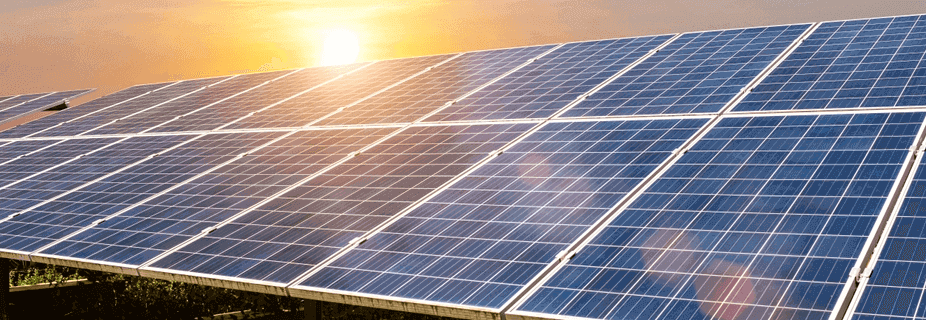KEY POINTS
- On average, solar panels have a 20-25 year lifespan and experience a 0.2% – 0.5% loss in solar output per year.
- To maximise your solar panels’ lifespan, it is important to clean, maintain and monitor them.
- Most solar panels have a manufacturer’s warranty period between 10 and 25 years, covering defects and failures.
Solar panels have become increasingly popular in Australia over the past two decades, with homeowners drawn by the possibility of saving money on their energy bills while also potentially lowering their carbon emissions and increasing their property value.
And while solar panels are generally a safe long-term investment, they do require proper maintenance to ensure no degradation in their performance. This article discusses the average lifespan of solar panels, as well as offering key tips to increase their longevity and looking at whether they’re usually covered under a warranty.
On this page, you’ll find:
Advertisement
What is the average solar panel lifespan?
The good news is that solar panels can last 25 to 30 years when installed correctly and regularly maintained by a professional. Most solar panel manufacturers offer a warranty period of at least 10 years, highlighting the manufacturers’ confidence in their products’ durability.
However, the average lifespan of a solar panel depends on factors including the quality of the installation, the type and brand of panel, weather conditions in the installation location and frequency of maintenance. When seeking to purchase a solar panel system, ask the installer about high-quality panel brands with a longer lifespan, typically above 20 years.
Do solar panels degrade over time, and why?
Solar panels do degrade over time. The process occurs mainly due to ultraviolet (UV) radiation, which breaks down the materials in the panels. Australia has some of the highest UV radiation rates in the world, leading to faster solar panel degradation.
However, the rate of degradation depends on the type of solar panel installed, the quality of the materials used and proper installation and maintenance – as well as the level of UV radiation in your location. Even with degradation, your solar panels can still produce electricity, just at a less efficient rate.
For example, a study conducted by the National Renewable Energy Laboratory (NREL) estimates that panels suffer a decrease of 0.5 – 0.8% of their solar energy output every year.
Why the lifespan of solar panels is important
Solar panels close to the end of their lifespan typically experience a 12% – 15% loss in total energy output. Aging solar panels will cost you more over time if left unchecked. As more time passes, your energy bill is likely to grow higher.
This is because the lapse in output means there will be less solar energy for you to either:
- Consume immediately or store in a solar battery for future use, which reduces how much you spend on grid energy
- Export back to the grid in exchange for a bill credit (called a solar feed-in tariff)
Compare solar electricity plans in your state
Here are some of the cheapest solar-specific deals from the retailers on our database. These costs are based on the Ausgrid network in Sydney but prices will vary depending on your circumstances. We show one product per retailer, listed in order of lowest price first. Annual price estimates assume general energy usage of 3900kWh/year for a residential customer on a single rate tariff. Price estimates exclude solar feed-in tariff credits. These are products from referral partners†. Our database may not cover all deals in your area, and please check retailer websites for up to date information.
Here are some of the cheapest solar-specific deals from the retailers on our database. These costs are based on the Citipower network in Melbourne but prices will vary depending on your circumstances. We show one product per retailer, listed in order of lowest price first. Annual price estimates assume general energy usage of 4000kWh/year for a residential customer on a single rate tariff. Price estimates exclude solar feed-in tariff credits. These are products from referral partners†. Our database may not cover all deals in your area, and please check retailer websites for up to date information.
Here are some of the cheapest solar-specific deals from the retailers on our database. These costs are based on the Energex network in Brisbane but prices will vary depending on your circumstances. We show one product per retailer, listed in order of lowest price first. Annual price estimates assume general energy usage of 4600kWh/year for a residential customer on a single rate tariff. Price estimates exclude solar feed-in tariff credits. These are products from referral partners†. Our database may not cover all deals in your area, and please check retailer websites for up to date information.
Here are some of the cheapest solar-specific deals from the retailers on our database. These costs are based on SA Power network in Adelaide but prices will vary depending on your circumstances. We show one product per retailer, listed in order of lowest price first. Annual price estimates assume general energy usage of 4000kWh/year for a residential customer on a single rate tariff. Price estimates exclude solar feed-in tariff credits. These are products from referral partners†. Our database may not cover all deals in your area, and please check retailer websites for up to date information.
How to increase solar panel lifespan
Regular professional maintenance is vital to the longevity of your solar panels. Many solar installers in Australia recommend scheduling professional maintenance checks on your panels at least once every two years. Between pro upkeep, there are a few things you can do to protect and increase the lifespan of your solar panels.
Clean your solar panels
Keep your solar panels clean by wiping them with a non-abrasive cloth or soft-bristled broom and water. This will prevent dust and debris build-up that could impair the panels’ ability to receive sufficient sunlight.
Inspect your solar panels for damage
Check for any damages or defects on the surface of the panels and have them repaired immediately (especially after extreme weather conditions if it is safe to do so). Failure to fix these issues could lead to further damage.
Regularly monitor your solar panels’ performance
Actively monitor your solar panels’ health by installing a solar monitoring device or a home energy monitor that’s typically provided by your solar installer or panel manufacturer.
If there’s a measurable lapse in efficiency, it’s important to consult a qualified installer to determine the next best steps, which may include a solar panel replacement or solar system upgrade.
Are solar panels covered under a warranty?
Most, if not all, solar panels come with a warranty that covers defects and failures. Solar panels typically have a warranty period of between 10 and 25 years, depending on the type of panel and manufacturer.
Always ask your installer about what is and isn’t covered under the warranty before going ahead with solar panel installation. This info will usually be outlined in the fine print of your contract, so make sure to read it and ask your installer any questions you may have about the warranty terms.
Are solar panels covered by home insurance?
Most home and contents insurance policies cover solar panels and other parts of your solar system, such as the inverter, because they’re considered a permanent fixture that’s part of the building. However, it’s important to check the Product Disclosure Statement and any other documents that come with your policy to ensure your panels are included. You may need to make your insurer aware that your home includes a solar system because this could impact your ‘sum insured’, which is the value you stand to recoup in a claim. A higher sum insured could increase your insurance premium.
Also, be aware that damage to your solar panels caused by some weather events may be excluded from your policy or excluded if those weather events aren’t specifically noted as covered by your policy. If you’re unsure about what circumstances in which your solar panels and other items are covered, it’s wise to check specifically about this with your insurer.
Original reporting by Veronika Hleborodova
Image source: Porstocker/Shutterstock




Share this article